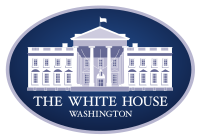You're Hired: Tracking the Trump Administration Transition - March 13, 2017

Trump Administration Vice President Mike Pence Cabinet • White House staff • Transition team |
Domestic affairs: Abortion • Crime and justice • Education • Energy and the environment • Federal courts • Firearms policy • First Amendment • Healthcare • Immigration • Infrastructure • LGBTQ issues • Marijuana • Puerto Rico • Social welfare programs • Veterans • Voting issues Economic affairs and regulations: Agriculture and food policy • Budget • Financial regulation • Jobs • Social Security • Taxes • Trade Foreign affairs and national security: Afghanistan • Arab states of the Persian Gulf • China • Cuba • Iran • Iran nuclear deal • Islamic State and terrorism • Israel and Palestine • Latin America • Military • NATO • North Korea • Puerto Rico • Russia • Syria • Syrian refugees • Technology, privacy, and cybersecurity |
| Polling indexes: Opinion polling during the Trump administration |
This is the March 13, 2017, edition of an email sent from November 2016 to September 2017 that covered Donald Trump's presidential transition, cabinet appointees, and the different policy positions of those individuals who may have had an effect on the new administration. Previous editions of "You're Hired" can be found here.
This week—likely Thursday—President Trump will submit his budget proposal to Congress, which is intended to fund the federal government for the fiscal year beginning October 1, 2017. The president’s budget proposals are crafted by the Office of Management and Budget, which is headed by Mick Mulvaney. The Congressional Budget Office provides reports and projections for the federal budget but does not engage in policy discussions. Their role is to provide objective and impartial analyses of the budget.
There are two basic levels of funding that go into the federal budget. Mandatory spending is the money budgeted for programs that are already codified into law. Think Medicare or Social Security. Discretionary spending funds other programs, like education, transportation, agriculture, or defense.
Most discussion of the federal budget focuses on discretionary spending.
How a federal budget happens
When all goes according to plan, the whole process generally plays out over several months, with a final bill ideally signed before October 1. Here is a guide to how it should happen:
1. The president submits a budget proposal that has been put together by the Office of Management and Budget. This, in essence, amounts to a wishlist and gives a clear indication of the president’s spending priorities.
2. The Budget Committees in both the House and Senate pass their own budget resolutions, which amount to other wishlists.
3. Appropriations Committees in the House and Senate determine more precise levels of spending for discretionary funds. There are 12 subcommittees in these committees:
- Agriculture, Rural Development, Food and Drug Administration, and Related Agencies
- Commerce, Justice, Science, and Related Agencies
- Defense
- Energy and Water Development, and Related Agencies
- Financial Services and General Government
- Homeland Security
- Interior, Environment, and Related Agencies
- Labor, Health and Human Services, Education, and Related Agencies
- Legislative Branch
- Military Construction, Veterans Affairs, and Related Agencies
- State, Foreign Operations, and Related Programs
- Transportation, Housing and Urban Development, and Related Agencies
Bills from these committees will become the appropriations bills that the president will sign into law.
4. The full House and full Senate vote on the appropriations bills, reconcile differences, and send final drafts to the president.
5. The president signs (or vetoes) each appropriations bill to make the budget law.
Read on: Who serves in each House Appropriations Subcommittee?
Read on: Who serves in each Senate Appropriations Subcommittee?
A budget is almost never passed this way, at least not in recent years. According to the Bipartisan Policy Center, the last time all appropriations bills were enacted on time was for the 1996 fiscal year. Rather, Congress has relied on Continuing Resolutions—which are short-term budget bills—or omnibus bills—which direct federal spending across these areas rather than rely on 12 separate appropriations bills.
What to expect in Trump’s budget request
In late February, the Trump administration previewed its budget priorities. The budget is expected to have a 10 percent increase in military and defense spending while decreasing spending for the Environmental Protection Agency and for the Department of State. Of the administration’s increase in defense spending, Trump said, “This is a landmark event, a message to the world, in these dangerous times, of American strength, security and resolve.”
The preliminary report specified that budgets for the Federal Emergency Management Agency, the Coast Guard, and the Transportation Security Administration would be cut to fund efforts aimed at eliminating illegal immigration, including the construction of a border wall between the U.S. and Mexico.
During the transition, Trump’s team proposed cuts in spending and program elimination in the Departments of State, Commerce, Energy, Justice, and Transportation as well as the elimination of the National Endowment for the Arts and the National Endowment for the Humanities. The team also proposed privatizing the Corporation for Public Broadcasting, which supports public radio and television stations, like NPR and PBS.
You’re Hired flashback: The Mick Mulvaney edition
In December, when Mulvaney was nominated to lead the Office of Management and Budget, we highlighted how the OMB and Mulvaney were expected to address three of Trump’s stated budget priorities. Here’s what we said then:
- Repeal of the Affordable Care Act:
- OMB: The OMB would be responsible for crafting the budget in accordance with Trump’s desire to repeal and replace Obamacare. The budget would need to fund Trump’s alternative to the plan, which he has said would involve instituting some form of health savings accounts. Even without congressional repeal of the Affordable Care Act, OMB could end the law by crafting a budget that simply refuses to fund it.
- Mulvaney: He has been a consistent critic of the Affordable Care Act; one of his first votes in 2011 was to repeal the legislation. In May 2016, he told the Greenville Herald that repealing the law was one issue on which he would not budge, saying, “Obamacare needs to be repealed and replaced with something that makes healthcare affordable. It isn’t working. We knew it wouldn’t work. Sadly, I don’t think it was ever intended to work.”
- Tax cuts:
- OMB: Any reduction in revenue from tax cuts would have to be accounted for in the federal budget as drawn up by OMB. Trump claims his proposed tax cuts will be “revenue neutral” because of the cuts in government spending and the economic growth he expects. OMB would be responsible for ensuring the “disciplined budget management and elimination of waste, fraud and abuse” that Trump said would keep his tax plan from adding to the national debt.
- Mulvaney: When he ran for Congress in 2010, Mulvaney supported permanently extending the tax cuts enacted under George W. Bush in 2001 and 2003. He did vote against the Fiscal Cliff compromise in 2013, which extended those tax cuts, because it increased spending overall. At the time, he said that “‘trading’ increased spending and deficits for lower taxes is not a plan for compromise, it is a formula for economic collapse.” In the past, Mulvaney has been against raising taxes and for eliminating the capital gains tax on businesses.
- Infrastructure investment:
- OMB: Increased spending in infrastructure investment is one of the key spending items Trump has mentioned specifically. He has proposed investing nearly $1 trillion in infrastructure, even mentioning the investment in his victory speech by citing the need to “fix our inner cities and rebuild our highways, bridges, tunnels, airports, schools, hospitals.” This increase in spending is likely to be OMB’s biggest challenge in 2017, as the office would need to work with Congress to pass spending increases that Republicans opposed during the Obama administration.
- Mulvaney: Mulvaney is a critic of increased spending, especially if he considers it to contribute to the national debt. When first elected to the U.S. House, he co-sponsored the Balanced Budget Amendment, and he has advocated for spending cuts in the belief that “you can’t spend money you don’t have.” It's unclear how Trump's infrastructure proposal would fit Mulvaney's previously discussed thoughts about balanced budgets, but as director of the OMB, it would be Mulvaney's job to do so.
See also
- You're Hired: Tracking the Trump Administration Transition
- Donald Trump presidential transition team
| ||||||||||||||||



